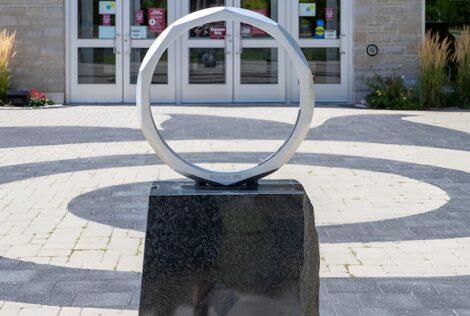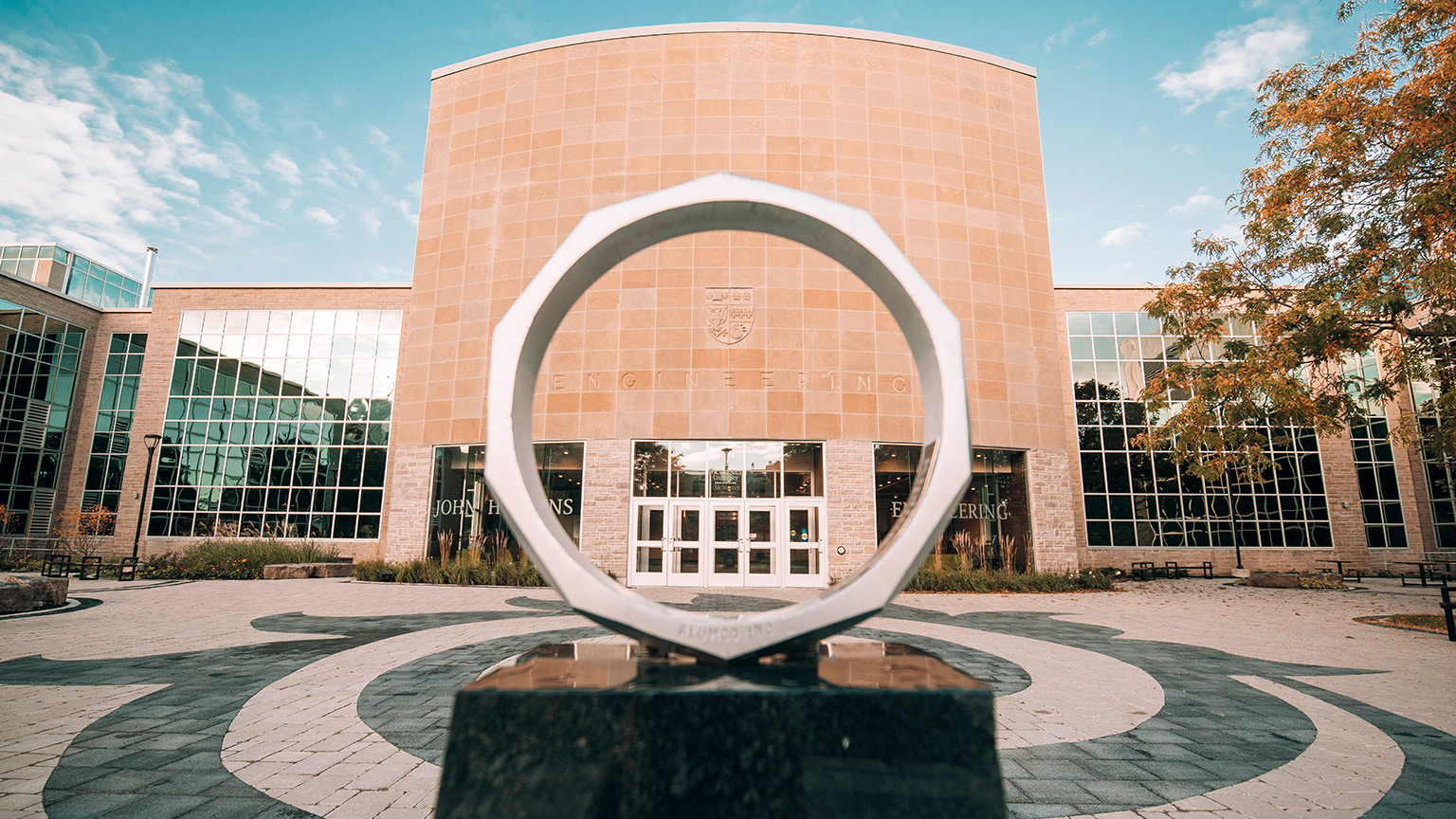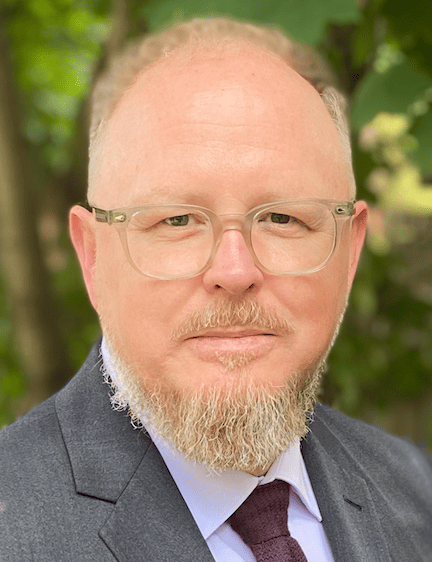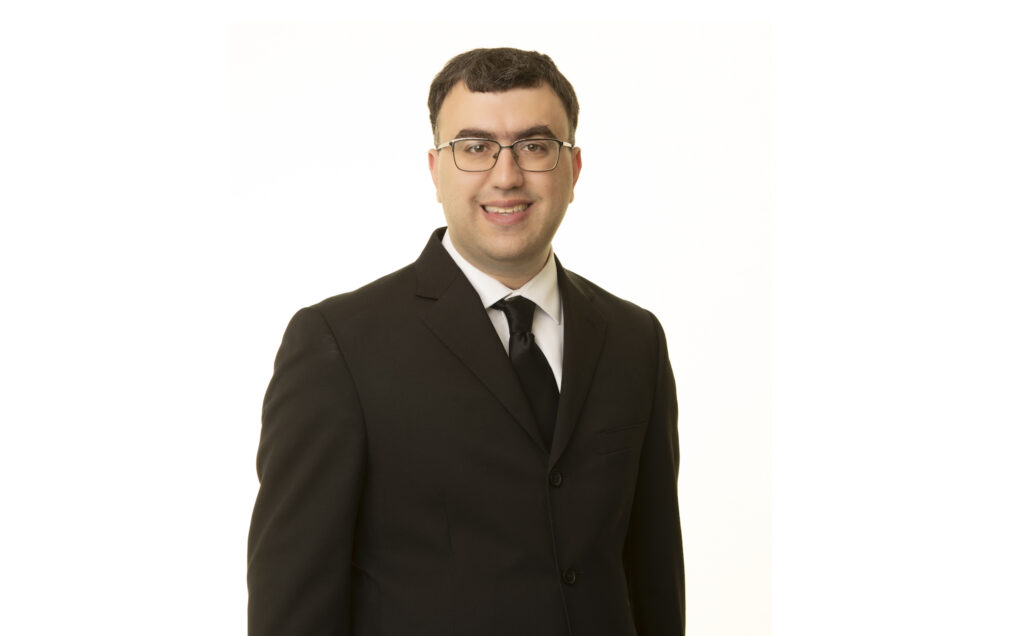

On August 29, 1907, tragedy struck in Quebec City when a bridge undergoing construction collapsed, killing 75 of the 86 workers on site.
The Quebec Bridge Disaster had a reverberating effect across the engineering community, leading to the creation of ethical practices and ideals to which all engineers across Canada are held.
The creation of the Iron Ring in 1922 began a symbolic tradition of bestowing a ring to the next generation of Canadian engineers who are committing to fulfilling their professional roles with the utmost care and respect for the communities they serve.
As this year’s graduating class of McMaster Engineers prepare for the first-ever Camp XIII Iron Ring ceremony open to family and friends of ring recipients, we take a moment to reflect on the inextricable link between engineering and ethics.
Two McMaster Engineering professors who are experts in Artificial Intelligence (AI) reflect on the symbolism of the ring and how ethics is at the fore of their practice.

Thomas E. Doyle, Electrical and Computer Engineering
What does the Iron Ring symbolize to you?
The Iron Ring serves as a testament to the dedication and effort invested in your pursuit of knowledge, symbolizing your commitment to upholding the profession’s high standards.
Why is it important to put ethics at the forefront of engineering practice?
An engineer’s work can have broad implications on society. Certainly, engineers that work in the biomedical domain are driven by improving human lives with new and enhanced technology. Putting ethics at the forefront in the design of new and improved approaches helps to ensure our work has the greatest positive impact for the most people.
Can you give us a real-world example of why ethical engineering is important?
Society is currently seeing the many benefits of machine learning and artificial intelligence in a wide number of applications. Healthcare, particularly in decision support and diagnostics, stands out as a key area where these technologies are gaining significance. The intricacies involved in developing AI models remain largely hidden, and the results they produce can be complex to interpret.
The concept of Ethical AI, commonly known as Responsible AI, emphasizes the necessity for transparency in AI systems, especially in critical sectors like healthcare. These systems should be designed to provide clear and comprehensible decisions. This approach can be likened to the food industry’s practice of providing nutrition and ingredient information on labels, suggesting that AI models, especially those affecting health decisions, should be equally transparent and detailed.
How do you practice ethical engineering in your day-to day life?
My research encompasses diverse perspectives, integrating expertise from various domains and backgrounds to develop healthcare and biomedical AI models. This collaborative approach ensures our work is impactful and supports clinical applications.
Although our lab engages in numerous healthcare-related projects, our central focus is on fostering Responsible AI. We aim to enhance trust in artificial intelligence by addressing trust barriers and exploring partnership opportunities with AI.
What advice would you give to the graduating students who are receiving their Iron Ring this week?
Always remember that the completion of your degree demonstrates that you have the ability to learn a large amount of complex theory and turn it into real tangible solutions. Take pride in this ability and confidently embrace new challenges.

Omar Boursalie, Mechanical Engineering
What does the Iron Ring symbolize to you?
The Iron Ring symbolizes more than just a graduation milestone. It signifies that the graduating students have joined our engineering community, carrying a responsibility to safeguard society and actively contribute to building a brighter world. As the graduates gain professional experience, the Iron Ring symbolizes their growing commitment to supporting future generations on their engineering journey.
Why is it important to put ethics at the forefront of engineering practice?
Artificial intelligence (AI) is a promising tool in healthcare. As engineers, our goal with AI is not just technological advancement but augmenting human decision-making to improve efficiency and outcomes. Remembering that an engineer’s work directly impacts people is crucial. Stakeholders such as health professionals, administrators, government officials, patients and their families trust engineers to be ethical and responsible in developing and deploying effective AI-based healthcare systems.
Can you give us a real-world example of why ethical engineering is important?
AI models’ performance degrades after deployment in clinical settings due to the limitations of the training data. Engineers are exploring updating AI models after deployment to improve performance. However, updating AI models using the latest data impacted by the model can create feedback loops that amplify system bias. Ethical engineering is crucial for building, deploying and maintaining AI models that mitigate feedback loops in clinical settings.
How do you practice ethical engineering in your day-to-day life?
Engineers increasingly recognize the importance of evaluating their AI models’ performances using Responsible AI (RAI) dimensions such as fairness, explainability, security, privacy, reliability, robustness and resiliency. I strongly urge graduating students to consider and prioritize RAI dimensions in all their engineering projects.
What advice would you give to the graduating students who are receiving their Iron Ring this week?
Remember that the Iron Ring represents your entry into a community ready to support you. Seek mentors at work, the McMaster Alumni Partners and Advisor Network, and professional associations like the OSPE, ONWiE, and IEEE. Mentorship will be invaluable as you navigate your engineering journey and will enable you (one day!) to give back by supporting future generations of engineers.
All the best in your engineering careers!
